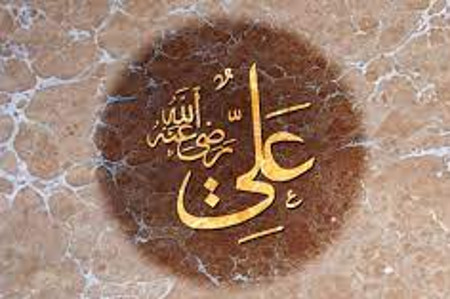
In the 7th year after hijrah, Rasulullah (sallallahu ‘alaihi wasallam) and the Sahaabah (radhiyallahu ‘anhum) marched against the Jews of Khaibar.
When Rasulullah (sallallahu ‘alaihi wasallam) and the Sahaabah (radhiyallahu ‘anhum) arrived in Khaibar, the Jews immediately sought refuge within their various fortresses in Khaibar. The first fortress which the Sahaabah (radhiyallahu ‘anhum) conquered was the Fortress of Naa‘im. Thereafter, the Sahaabah (radhiyallahu ‘anhum) came to the Fortress of Qamoos, which was one of the strongest fortresses in Khaibar, and laid siege to it.
At that time, Rasulullah (sallallahu ‘alaihi wasallam) was afflicted with a severe headache, and hence he was unable to participate in the fighting. Thus, on the first day, Hazrat Abu Bakr Siddeeq (radhiyallahu ‘anhu) carried the banner and went out to fight. However, it was not decreed for him to conquer the fortress. On the second day, Hazrat ‘Umar (radhiyallahu ‘anhu) carried the banner and went out to fight. However, the conquering of this fortress was also not decreed for him.
Thereafter, Rasulullah (sallallahu ‘alaihi wasallam) mentioned to the Sahaabah (radhiyallahu ‘anhum), “Tomorrow, I will give the banner to the one who loves Allah Ta‘ala and His Rasul (sallallahu ‘alaihi wasallam), and Allah Ta‘ala and His Rasul (sallallahu ‘alaihi wasallam) also love him.”
All the Sahaabah (radhiyallahu ‘anhum) spent the night hoping that they would receive the banner the following day. Even Hazrat ‘Umar (radhiyallahu ‘anhu) mentioned, “There was never an occasion when I desired to be given a position of leadership – except on that occasion.”
The reason for the Sahaabah (radhiyallahu ‘anhum) desiring that the banner be given to them was that they all knew that they all knew that they possessed love for Allah Ta‘ala and His Rasul (sallallahu ‘alaihi wasallam) in their hearts. However, being given the flag by Rasulullah (sallallahu ‘alaihi wasallam) on this occasion would be a testimony and guarantee from the side of Allah Ta‘ala that they possessed this love, and that this love would remain with them forever.
The following day, Rasulullah (sallallahu ‘alaihi wasallam) asked the Sahaabah (radhiyallahu ‘anhum), “Where is Hazrat ‘Ali (radhiyallahu ‘anhu)?” They replied, “O Rasul of Allah (sallallahu ‘alaihi wasallam)! He is suffering from an illness in his eyes.”
Initially, Hazrat ‘Ali (radhiyallahu ‘anhu) was not considering going to Khaibar on account of his ill health. However, Allah Ta‘ala wished to bless and honor him with this special honor and thus inspired him to set out. Hence, it is reported that though he did not set out with the Sahaabah when they departed for Khaibar, he later on felt sad over remaining behind and thus came to Khaibar.
Hazrat ‘Ali (radhiyallahu ‘anhu) was then brought to Rasulullah (sallallahu ‘alaihi wasallam). Rasulullah (sallallahu ‘alaihi wasallam) asked him to place his head in his mubaarak lap. Thereafter, Rasulullah (sallallahu ‘alaihi wasallam) placed his mubaarak saliva in his palm and rubbed it onto the eye of Hazrat ‘Ali (radhiyallahu ‘anhu). Through the blessing of his mubaarak saliva, the eyes of Hazrat ‘Ali (radhiyallahu ‘anhu) were immediately cured. In fact, Hazrat ‘Ali (radhiyallahu ‘anhu) mentioned that from that day until the day he passed away, he never again suffered from any pain in his eyes.
Rasulullah (sallallahu ‘alaihi wasallam) also made du‘aa for Hazrat ‘Ali (radhiyallahu ‘anhu) saying, “O Allah! Save him from the effects of heat and cold!” It is reported that on account of Rasulullah (sallallahu ‘alaihi wasallam) making this du‘aa for him, he was immune to hot and cold weather, to the extent that he could wear thick and warm clothing in the heat of summer, and thin and cool clothing in the cold of winter, and still remain comfortable and unaffected.
Rasulullah (sallallahu ‘alaihi wasallam) then handed the banner of the Muslims to Hazrat ‘Ali (radhiyallahu ‘anhu) and instructed him that before fighting the enemy, he should first invite them to accept Islam. Rasulullah (sallallahu ‘alaihi wasallam) then said to him, “By Allah! For Allah Ta‘ala to make you the means of one person’s guidance is better for you than red camels (a type of camel regarded as very precious and valuable).”
To be continued
(Saheeh Bukhaari #4210, Majma’uz Zawaa’id #10206, Fat-hul Baari 7/535-549 and Sharhuz Zurqaani 3/244-258)
 Ihyaaud Deen An Effort to Revive Deen in Totality
Ihyaaud Deen An Effort to Revive Deen in Totality



